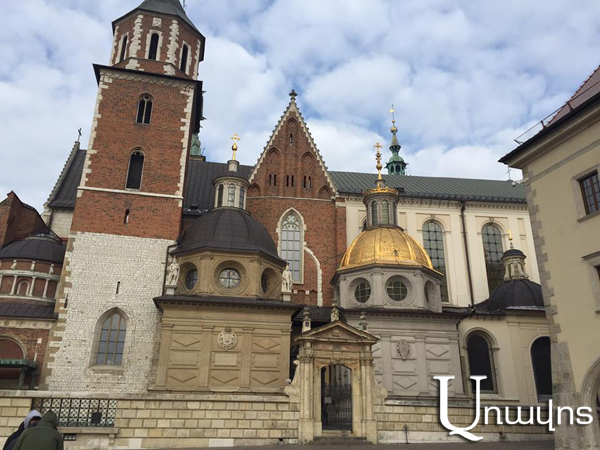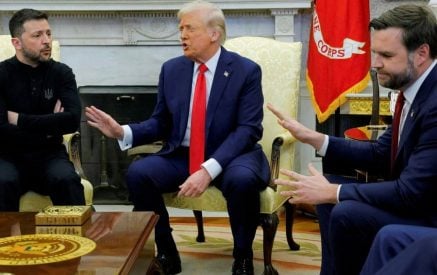Poland is really amazing not only for its medieval-style castles and historic buildings but also for its new buildings. The main part of Warsaw is located on the left bank of Vistula and covers the historic core of the city: the Old (Stare Miasto) and the new (Nové Město) towns. Medieval tower-building are preserved in the old town, while in the new town, there are Gothic-style buildings and monasteries. Warsaw is a standard European city, some of the new buildings, at the first glance, are built in the style of an illogical combination. I was lucky enough to be in Warsaw and Krakow.
Unlike Armenian churches, the churches in Poland are decorated, during the Christmas holidays, New Year trees are placed inside these churches with golden and silver icons. During the church masses, the churches are packed. The Poles are religious people. Armenians are very well-known there and on hearing the word Armenia, they do not mix with the names of other countries. People in Warsaw are restrained, it seems they do not smile much but answer the tourists’ questions politely. It is too bad that the sign boards and names of the streets are only in Polish. Incidentally, in the courtyard of St. Nicholas Church in Krakow, Poland, there is a cross-stone memorial dedicated to the Armenian Genocide, which was erected in 2004 under the initiative of the Polish-Armenian community and clergy of the Krakow Monastery, Tadeusz Isahakyan-Zaleski.
Our hotel was located in the neighborhood of the old town of Krakow, in the Jewish Kazimezh district which was founded in 1335 by the a Polish Emperor, and in modern times, the district is also known for the fact that Roman Polanski’s film “The Pianist” which won 3 Oscars was shot here. Krakow is truly a royal town, it is considered to be the heart of Poland, once it was also a capital and royal residence. Here, you can meet Renaissance-, Baroque- and Gothic-style buildings. St. Stanislav and Wenceslas, as well as the Babylonian fortresses, are the symbols of Krakow but in general, there are about 130 churches here, of which only 60 are in the Old Town. Krakow is included in the UNESCO World Heritage List. In 2000, it was declared a cultural capital of Europe.
Read also
Our impression is that people in Krakow are more friendly and smile more often. Decorated carriages wonder in the territory of the Old town offering a tour to the tourists by the narrow streets of the old town. According to the information reported by the Embassy of Armenia to Poland, there are 5 Armenian Sunday schools in Poland. There is an Armenian Educational center in Warsaw, an Armenian school adjacent to the Armenian Cultural Company in Krakow, an Armenian school adjacent to the Union of Armenian in Lodz, a school adjacent to the Armenian community union in Gdansk, and Armenian language courses adjacent to the Polish-Armenian Cultural Company in Wroclaw. The Polish-Armenian community has produced the world-renowned doctors and scientists and artists. One of them is the famous painter Theodore Aksentovich, whose art plays an important role in the history of Polish painting.
By the way, in 1895, Institute of Fine Arts in Krakow has invited an Armenian nationality artist to be the head of the Chair of Painting, and when this school became an academy, Aksentovich was elected a rector. Naturally, the impression of any country would be incomplete without the national cuisine of these people. Poles have a rich national cuisine and are able to properly present all of it to the tourists. They prefer fried dishes, it seems they do not use many spices, but the sweets and chocolates are just wonderful. I was surprised at one of their soups called goulash with beef meat, it turned out that the beef meat is one of the Armenian traditional khash components, just a beef belly. It never occurred to my mind that it can be used for soup in a combination of carrot and green pepper.
Gohar HAKOBYAN
Warsaw-Krakow-Yerevan,
Photos made by the author





























































